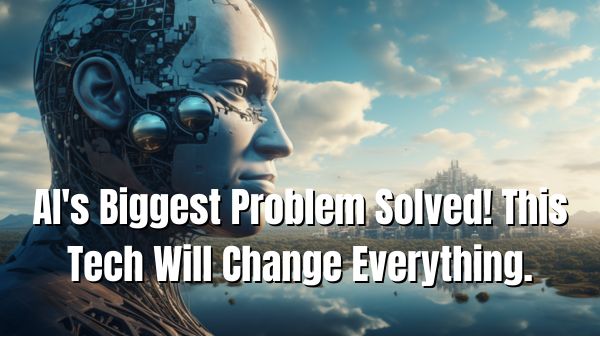Blockchain Technology: The Path to Data Integrity for AI
Artificial intelligence (AI) is rapidly transforming numerous industries, unlocking new possibilities and driving innovation. However, a critical challenge lies at the heart of AI’s power: data integrity. Biased, inaccurate, or manipulated data can lead to flawed AI models, potentially causing discriminatory outcomes, wasted resources, and even safety risks. This is where blockchain technology emerges as a potential game-changer, offering a path to ensure the integrity, transparency, and security of the data that fuels AI advancements.
The Data Dilemma for AI:
- Data Bias: Unconscious biases present in datasets can be amplified by AI algorithms, perpetuating unfairness and discrimination.
- Data Provenance: Tracing the origin and lineage of data can be difficult, hindering accountability and trust.
- Data Manipulation: Tampering with data for malicious purposes can lead to unreliable AI outputs.
- Data Sharing: Securely sharing data between parties without compromising privacy remains a challenge.

Blockchain to the Rescue:
Blockchain technology, with its core features of immutability, decentralization, and transparency, offers a unique solution to these data challenges:
- Immutability: Data once recorded on a blockchain cannot be altered or deleted, ensuring authenticity and auditability. This creates a reliable record of data origin and prevents manipulation.
- Decentralization: Data is stored across a distributed network of computers, eliminating the risk of a single point of failure and manipulation. This fosters transparency and trust in the data itself.
- Transparency: Every transaction on the blockchain is visible to authorized participants, providing a clear audit trail for data usage and analysis. This helps identify and address potential biases or errors.
- Secure Sharing: Securely sharing data with authorized parties is possible without compromising privacy through smart contracts and access control mechanisms on the blockchain. This fosters collaboration and data exchange while preserving privacy.
Benefits for AI:
- Improved data quality: Blockchain ensures data integrity, leading to more accurate and reliable AI models, reducing the risk of biased or flawed outputs.
- Enhanced trust and transparency: The open and auditable nature of blockchain builds trust in AI systems and their decision-making processes.
- Secure data collaboration: Facilitates secure data sharing and collaboration between researchers, developers, and organizations, accelerating AI innovation.
- Streamlined regulatory compliance: Blockchain can simplify compliance with data privacy regulations like GDPR by providing a transparent audit trail of data usage.
Examples in Action:
- Decentralized AI platforms: Projects like Ocean Protocol and Singularity NET leverage blockchain to enable secure and transparent data marketplaces for AI development.
- Supply chain traceability: Blockchain ensures the authenticity and origin of products, fostering trust and transparency in AI-powered logistics and supply chain management.
- Healthcare data management: Blockchain can securely store and manage medical data, enabling secure data sharing for research and personalized AI-driven healthcare solutions.
Challenges and Considerations:
- Scalability and performance: Current blockchain systems may not be able to handle the massive data volumes required for complex AI applications.
- Privacy concerns: Balancing data transparency with individual privacy remains a challenge in some applications.
- Regulatory uncertainty: Evolving regulations surrounding blockchain need to be considered for specific implementations.
Conclusion:
While not a panacea, blockchain technology presents a powerful tool for securing and enhancing the data used by AI. As AI continues to evolve, ensuring the integrity of its underlying data is critical for ethical and responsible development. By harnessing the unique features of blockchain, we can pave the way for a future where AI thrives on reliable, transparent, and secure data, unlocking its full potential for positive impact across various sectors.
iShares Bitcoin Trust (IBIT): A Gateway to Bitcoin for Traditional Investors?
Related Job Updates
- Preparing for Bitcoin Halving 2024: Strategies for Maximizing Your Investments
- BCH Achieves Impressive 10% Surge Following Second Halving, While BTC Remains Steady at $66K
Latest Job Posts
- TGTRANSCO Recruitment 2026: 250 Apprentice Posts for BE/BTech & Diploma
- UPSC Recruitment 2026: Apply Online for 349 Assistant Commandant Vacancies @upsc.gov.in
- GAIL Recruitment 2026: 70 Executive Trainee Vacancies, Apply Online from 20 Feb
- DSSSB Recruitment 2026: 911 Vacancies for JE, AE, Legal Assistant, Apply from 24 Feb
- RRB ALP Vacancy 2026: 11,127 Posts Approved – Notification Date & Eligibility
Important Sections:
All Jobs | Admit Cards | Results | Answer Keys | Homepage
